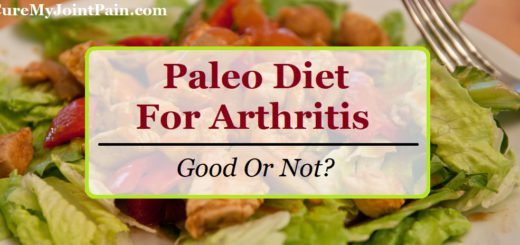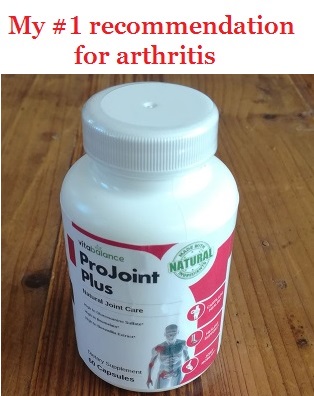Does Bromelain Help Joint Pain? The Good & The Bad

If you’re familiar with joint pain supplements, you surely heard of bromelain at least once. It’s a natural substances from pineapple that a lot of brands use, mainly because of its anti-inflammatory proprieties.
But does bromelain help joint pain for real? I’ve only seen it as a secondary ingredient in most products. So this made me wonder: Is it a really valuable ingredient or it’s used just to take some space on the ingredient list?
As I couldn’t find a clear answer anywhere, I decided to get one myself. So let me analyze the pros and the cons about bromelain and its effect in relieving joint pain.
THE GOOD
1. Anti-inflammatory
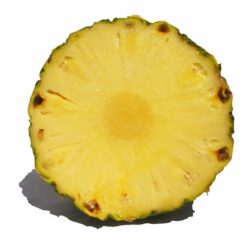 No matter what science says, bromelain is a natural anti-inflammatory. This means one thing. It is able to decrease swollen joints and consequently, the pain. In fact, there are several studies that can prove that. But unfortunately, scientists didn’t continue to study the benefits of bromelain, so this subject was somehow left in the shadow.
No matter what science says, bromelain is a natural anti-inflammatory. This means one thing. It is able to decrease swollen joints and consequently, the pain. In fact, there are several studies that can prove that. But unfortunately, scientists didn’t continue to study the benefits of bromelain, so this subject was somehow left in the shadow.
But for now, no one can question the effects of bromelain in relieving the pain.
And you know what’s the best proof that it works? The fact that a lot of joint supplements contains bromelain among their ingredients. It may not be their #1 substance, but I’ve seen it pretty often on the label.
Obviously, you can’t expect it to work overnight. It’s a natural remedy after all, and you probably know that it takes a while until they start working. But on the long term, bromelain can decrease the swollen joints and relieve your pain.
2. Increases Joint Mobility
If you have osteoarthritis or cartilage problems, you should write down bromelain on your must-try list. That’s because it can also increase the flexibility of stiff joints, which is a big problem in osteoarthritis.
That doesn’t have much to do with reducing the swelling.
People with OA don’t suffer from major inflammation, like those with RA do. Instead, their #1 problem is cartilage damage, which makes the bones rub against each other. And that’s what’s causing the pain, because there’s no big inflammation.
So besides reducing inflammation, bromelain can also make your joints more flexible. This means that your morning stiffness can decrease after a while, or even go away completely. And that’s available for sitting stiffness too.
Obviously, it can only happen on the long term, not in a few days.
3. Antioxidant Proprieties
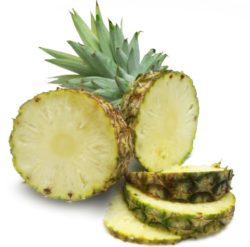 You surely heard about antioxidants and their benefits for joint pain, right? But did you know that bromelain was one of them? I surely didn’t.
You surely heard about antioxidants and their benefits for joint pain, right? But did you know that bromelain was one of them? I surely didn’t.
That’s because bromelain is famous for its anti-inflammatory proprieties, so its other benefits are somehow left apart.
Well, just like every antioxidant, bromelain fights against oxidative stress. You can associate this oxidative stress with aging, because that’s when it mostly appears. You probably know that a lot of elderly have joint problems. Well, guess who is one of the main responsible for that? Oxidative stress.
Basically, bromelain protects the joints against the damaged caused by oxidative stress. This damage can lead to osteoarthritis and any related problems, which are pretty common when you’re getting older.
That’s why you can find bromelain in a lot of OA supplements. As it protects the joints and their cartilages, the condition doesn’t progress anymore. Osteoarthritis supplements usually associate bromelain with glucosamine and chrondroitin. The first one protects the joints, while the other 2 rebuild the cartilage in time. So there are a lot of benefits if you have patience.
THE BAD
1. No Real Studies
Even though there were a few studies conducted on bromelain for joint pain, they didn’t come up with a certain result.
Everyone agrees that bromelain can decrease joint pain, that’s for sure. But unfortunately, studies didn’t show any clear numbers or results. Most of them finish with a phrase like this: “Bromelain is believed to decrease joint pain, but further studies are required to tell for sure”.
All the studies I came across ended with a similar phrase, so it’s clear the scientists aren’t very sure. There are lots of people who saw the benefits of bromelain themselves, but it seems that this isn’t enough.
So for now, science can’t explain if or how bromelain can treat joint pain. If you care about studies and research, then it’s not something you have to use in the nearest future.
2. It Doesn’t Work That Well Alone
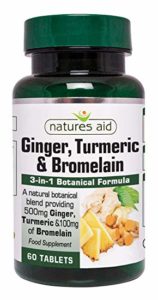 Have you seen a joint pain supplement based only on bromelain? Yes, there are a few, but they’re not very popular from what I know. That’s because bromelain alone doesn’t do that much, despite being effective in theory.
Have you seen a joint pain supplement based only on bromelain? Yes, there are a few, but they’re not very popular from what I know. That’s because bromelain alone doesn’t do that much, despite being effective in theory.
So bromelain can decrease the inflammation and protect unhealthy joints, but how well can it do it? This is the main question.
Unfortunately, it doesn’t have the same power as turmeric, which is the #1 anti-inflammatory in my opinion. Turmeric can decrease the inflammation alone, it doesn’t need anything else. On the other hand, if you take bromelain alone, I doubt your joint pain will disappear completely.
So that’s basically why bromelain is rarely the #1 ingredient in joint supplements. It’s not strong enough to cure a chronic pain alone, so it needs some other herbs like turmeric, ginger or Cayenne pepper.
3. Real Side Effects
Unlike some other herbal remedies, bromelain comes with certain risks. And it’s all related to the dose you’re taking.
As there aren’t many real studies conducted on bromelain, we can’t really tell what’s the average dose. Maybe that’s a reason why supplements don’t use bromelain as their main ingredient.
From what I’ve seen, most of them contain between 20-50 mg of bromelain per serving. I apologize if I’m wrong, but that’s just a quick estimation from what I remember.
This dose doesn’t sound a lot, and it’s definitely not. Compared to 1000 mg of glucosamine, this dose may seem insignificant. But there’s a reason for this – a dose that is too high could produce some pretty bad side effects. Fortunately, studies didn’t keep these ones secret too.
High doses could lead to diarrhea, nausea and vomiting, which are pretty similar to the side effects of turmeric, another anti-inflammatory. It can also interfere with blood-thinning medication, so that’s a big reason to worry.
In my opinion, this is the worst things about bromelain.
My Final Verdict – Does Bromelain Help Joint Pain?
Short answer: It’s definitely a great herb for inflammation, but it’s not strong enough to work alone. For this reason, I recommend it more for osteoarthritis than for rheumatoid arthritis.
In OA supplements, bromelain is associated with glucosamine, so it has much higher chances of success.
On the other hand, pills for RA are pretty much based on turmeric, which is a very strong ingredient itself. A few milligrams of bromelain won’t change much, because it’s not as potent as turmeric.
So I pretty much recommend bromelain for osteoarthritis and cartilage problems. It could really change something in these conditions, if it’s associated with the right ingredients. But when it comes to RA, I doubt it could beat turmeric.



